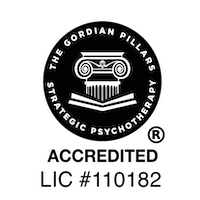Beat Procrastination
Solution-Focused Approach to overcome Procrastination
Brief and effective treatment to follow through with focus and flow
Procrastination
Procrastination feels like a battle between what you want to do and what you actually do.
- You’re tired and don’t feel motivated.
- You told yourself today was the day… but it wasn’t. Again.
- So you check your phone. Open the fridge. Scroll, click, watch – anything to avoid the task that’s quietly eating away at you.
It’s not that you don’t care. You do.
But the longer you avoid what needs to get done, the heavier it gets. And when nothing does get done, that sinking feeling creeps in – guilt, frustration, dread – like you’ve let yourself down again.

Are some of these points relatable to you? Common signs and symptoms of Procrastination
- You label yourself as lazy, a procrastinator, or self-sabotaging, and it’s becoming a core part of who you are.
- Deadlines stress you out, yet you still leave things until the very last minute – every time.
- You keep telling yourself “I’ll start tomorrow”, or “I’ll do it later”, but never actually do.
- You feel frustrated knowing exactly what needs to get done, yet you can’t seem to start – especially when motivation isn’t there.
- You put things off because you’re afraid of getting it wrong – or not doing it perfectly, especially if you’re a bit of a perfectionist.
- You overthink everything, to the point where it’s hard to make any real progress.
- You feel stuck and overwhelmed just thinking about that big project, task or assignment, and when you don’t start, the guilt and self-blame kicks in hard.
- Every time you procrastinate, it deepens the belief that you’re not good enough, or capable of achieving your goals.
However, we know at The Inward Process that procrastination isn’t about laziness, lack of willpower, or being “a procrastinator”. It’s not some personality flaw you have —but rather a pattern you do. A learned process your mind uses to avoid uncomfortable emotions like fear of failure, stress, or the pressure to get things “perfect.” Because behind procrastination is a web of overthinking, emotional overwhelm, and uncertainty about what to do next. But like any process, it can be understood, restructured, and overcome.
If you’re tired of getting in your own way and ready to take back control towards more consistent, purposeful action – then we’re here to help you.
Take 20 minutes to forge a new direction.
Click below to discover your
best self!
Hi, I'm Matthew
Your Local Strategic Psychotherapist and Clinical Hypnotherapist in Albury Wodonga
Hello, and welcome to The Inward Process, proudly serving Albury Wodonga and online. I’m Matthew, and I specialise in helping people break free from the cycle of procrastination.
Every session is uniquely tailored to you, because your experience of procrastination and the challenges behind it – are personal. Together, we’ll focus on equipping you with practical tools and strategies to not just manage procrastination—but how to overcome it. So that you can build lasting action, discipline and consistency in your life.
I know how procrastination feels – because I’ve been there. From feeling overwhelmed, struggling with my own perfectionism and doing things at the last moment, I’ve lived through the guilt and frustration of knowing what to do but not actually doing it. How procrastination chips away at your confidence, undermines self-belief and holds you back from achieving what matters most.
I’ve worked with clients from all walks of life—from students to high-performing professionals—providing a solution oriented approach, while ensuring they feel supported, heard and understood along the way.
If you’re ready to stop putting things off and start creating real change, then let’s get started.






How we Tackle Procrastination?
At The Inward Process, we don’t just tackle your to-do list or routines – we get to the root of why you keep putting things off. Procrastination isn’t about laziness, lack of willpower, motivation or some other “personality trait” you have, but rather it’s a pattern. And like any pattern, the process behind it can be understood and changed.
There are typically two core patterns behind procrastination:
1. You don’t feel like taking action, so you don’t.
Even when you know what to do, feelings of discomfort, fear of failure, perfectionism or motivation take over, and you listen to those thoughts of “I don’t feel like it”, “I’ll start tomorrow/later”, and these thoughts and feelings win. This is known as the approach avoidance conflict. You want to act, but emotional/mental resistance stops you.
2. You don’t know how to do something or what steps to take.
When you’re uncertain about how to start and the steps remain unclear, the uncertainty and stress can feel overwhelming. The task seems bigger than it is, and instead of bringing yourself to figure it out or do it, the mind shuts down and you avoid it altogether. For perfectionists especially, not knowing how to start and making it perfect often means not doing it at all.
Another common trap is analysis paralysis that stems from ‘useless analysis’. Useful analysis, or useful thinking leads to an action, but useless analysis keeps you looping – overthinking it, second-guessing every step, and convincing yourself you’re making progress, when in reality you’ve stalled. Useless analysis leads to analysis/paralysis, where the fear of making the wrong decision, prevents you from making any decision at all.
Ultimately, if you listen to the feelings that you are having now, or other global, limiting beliefs you may be saying to yourself like “I’m a procrastinator”, or “I’m lazy”, or “I don’t feel like it”, then you will procrastinate. This is what we tackle at The Inward Process. We’ll equip you with the tools to move past overthinking, analysis-paralysis and the approach avoidance conflict, so that you can finally take consistent action.
What we offer

Personalised sessions to overcome procrastination
Every session is tailored to you, helping you to understand what procrastination actually is, and it’s root causes. Most importantly, it’s not just manage – but overcome procrastination effectively.

Break free from the cycle of procrastination and reclaim control
You will learn how to break free from the common patterns of procrastination that keep you stuck like analysis paralysis, overthinking, perfectionism & approach avoidance conflict.

Develop lifelong skills and tools for lasting change in your life
Learn practical, empowering skills and tools to build consistency, discipline and productivity. These lifelong skills will empower you to create meaningful action in your life.
Take 20 minutes to forge a new direction.
Click below to discover your
best self!
FREE Individual Recordings
Directly to Your Phone
Good therapy teaches you to operate differently in the world. We give you a range of resources to help discover a new way of being
Discover What is Possible
Frequently Asked Questions
Not sure yet? Here are the answers to some common questions
Procrastination is the habitual act of delaying or avoiding tasks that need to be accomplished, even when you know they are important or urgent. Often opting for short term comfort over long term success.
Procrastination
often results commonly from two ways. emotional resistance, such as stress, fear of
failure, perfectionism, and the actual costs involved in getting it done
(whether financial, emotional etc) is too high, leading to the perceived
overwhelming nature of the task, rather than laziness or self-sabotaging.
- Global statements like “I’m a procrastinator”, “I’m lazy”, “I’m self-sabotaging”
- Delaying tasks even when they are important
- Focusing on less critical tasks to avoid the main work
- Struggling with time management
- Feeling overwhelmed and stress by tasks/your to do-list
- Experiencing guilt, frustration about not completing tasks or excessive judgement
- Waiting for “motivation” or the “right mood” to start.
- High levels of perfectionism that prevent the person from starting.
- The lack of action reinforces their belief they are a failure and not good enough.
For procrastination, typically anywhere from 3 to 6 sessions are typically recommended. This allows the strategic therapist to address underlying psychological patterns/processes, introduce new behaviours/positive associations, and provide ongoing support for developing sustainable habits in the long term future.
Procrastination in students typically involves postponing studying or completing assignments until the last minute. This can be due to difficulty managing time, overwhelming workloads, performance anxiety (fear of not performing well), or a lack of effective study strategies/clear routines. It can significantly impact academic performance and increase anxiety.
Hypnosis is simply a tool, a fascinating and complex tool to me, and requires voluntary participation. Thus, you remain in control and can choose to come in and out of hypnosis at any time.
ntent
In the workplace, procrastination occurs when employees delay important tasks, leading to reduced productivity, missed deadlines, and increased stress. It can stem from unclear goals, fear of making mistakes, uncertainty about how to start the task, or feeling overwhelmed by the complexity of the work.
Procrastination is hard to stop because it often involves deep-seeded emotional responses like fear of failure, perfectionism, and anxiety/stress at the unconscious level. Your prefrontal cortex, the logical, busy analytical part of the mind, knows you shouldn’t procrastinate, but the issue with procrastination, is that decisions we make are based at the emotional, unconscious level. Many people wait for motivation to take action, which rarely comes before starting. Breaking this cycle requires action despite discomfort. So the key is to act, despite how you feel.
Procrastination serves as a coping mechanism by allowing individuals to avoid negative emotions such as fear, pain, uncertainty, frustration or their own negative thoughts. By delaying tasks, they temporarily escape the discomfort, but this avoidance tends to increase stress and anxiety over time.
Procrastination is common because many people rely on their feelings to drive action. In addition, fear of failure, perfectionism, and distractions make it easier to avoid challenging tasks. The abundance of instant gratification options, like social media, also contributes to procrastination.
Yes, hypnotherapy is a safe and effective way to address procrastination. In fact, it is arguably the most effective strategy for overcoming procrastination, because it helps the individual access the subconscious mind, where unhelpful patterns, such as fear of failure or self-doubt, often reside. By changing these patterns, hypnotherapy can reframe your mindset and promote action-oriented behaviours. With hypnotherapy, you can learn to separate your emotions from your actions, allowing you to move forward with tasks even when you don’t feel ready or motivated.
Yes, procrastination can often be a symptom of ADHD – but not because of laziness, or a lack of care. From a process oriented perspective, ADHD (Attention-Deficit/Hyperactivity Disorder) is a neurodevelopmental condition that affects how the brain regulates attention, motivation and executive functions like planning, organising and decision making. This often leads to difficulty initiating tasks, managing time, and following through – especially when the tasks feel boring, overwhelming, or unclear.
For many with ADHD, procrastination is a way to escape emotional discomfort, such as frustration, fear or failure, or mental fatigue. It’s not that the person doesn’t want to act – they may feel flooded, stuck or unsure where to begin. This creates a cycle where avoidance becomes the brain’s short term coping strategy. This is what we target. We target the underlying processes that drive procrastination.
At The Inward Process, we don’t see ADHD as a flaw or fixed label – but as a lens that can help you better understand how your brain processes the world. It’s there to inform you – not define YOU. ADHD doesn’t have to be a permanent limitation. It can become the very insight that helps you reclaim control, confidence and momentum in your life – when applied with an effective process. Ultimately, whether ADHD is part of the picture or not, we help clients build clarity, structure and emotional regulation – so they can move from overwhelm to purposeful action.
Clinical Hypnotherapy, isn’t about mind control or what you would typically think of from movies. Clinical hypnotherapy focuses on empowering clients to access their inner resources and make intentional changes in their behaviour. In treating procrastination, this process involves guiding clients into a deeply relaxed, focused state where they are more receptive to suggestions. Rather than merely addressing symptoms, the clinical hypnotherapist encourages clients to explore underlying beliefs, motivations, and patterns that fuel procrastination.
Our solution oriented approach emphasises the role of choice and personal responsibility, helping clients learn to respond differently to situations that would typically trigger procrastination. This method allows for change at a subconscious level, making it easier to carry new patterns into daily life.
During a hypnotherapy session for procrastination, the therapist guides the client into a relaxed, focused state. In this state, clients explore the deeper reasons behind their procrastination, including fear of failure, perfectionism, or lack of motivation at the subconscious level. The therapist then uses strategic themes, tools and resources to help the client replace these limiting beliefs with constructive thoughts and behaviours that reflect action and consistency.
The distinction between laziness and procrastination lies in intention and emotional barriers. Laziness is just simply the lack of desire and willingness to engage in productive activities, coupled by indifference, with no associated feelings of guilt/stress. People who are lazy may not feel compelled to do anything, and don’t experience any emotional discomfort from inaction.
Procrastination, however, involves a deeper internal struggle. Individuals who procrastinate can deem themselves as lazy, self-sabotaging, or a procrastinator. But this is instead a process. Procrastination stems from patterns like they believe they don’t control their thoughts and feelings very much, large global statements, fear of failing, perfectionism, and general uncertainty about where to start. People who run the process of procrastination are not lazy or self-sabotaging, but rather it involves, an overreliance of feelings, like waiting for motivation or clarity to strike before they start. They fail to see that beginning something, brings the clarity over time. These are the key differences.
Procrastination isn’t just about avoiding unpleasant tasks—it can also affect things you enjoy. This happens when internal blocks, such as perfectionism, fear of failure, or a lack of structure, prevent you from starting. You might avoid tasks you enjoy because of a fear of not doing them well enough or worrying about the consequences of finishing. Sometimes, the pressure to perform can lead to avoidance, even if the activity is something you generally look forward to.
It may also because of deeper issues like mild depression, where the individual feels apathetic, helpless and hopeless, about their current situation or life for example. Stable attribution is one of the main cognitive patterns that contribute to this issue.
Strategic Psychotherapy is a targeted, solution-focused approach designed to address the specific patterns of thought and behaviour that keep you stuck. When it comes to procrastination, these patterns might include avoiding tasks because they feel overwhelming, overthinking the steps until you feel paralysed, or waiting for the “right” motivation to strike before taking action.
Unlike traditional therapy, which often focuses on the past, strategic psychotherapy hones in on the present processes driving your procrastination. It’s about understanding why you’re caught in cycles of avoidance and identifying the key gaps in how you approach tasks. By doing this, we can develop practical strategies that empower you to act, even when emotions like fear, uncertainty, or perfectionism try to take over.
Through this method, you’ll gain the tools to break down overwhelming goals into manageable steps, park unhelpful feelings that lead to delay, and shift your focus from short-term discomfort to long-term achievement. Strategic Psychotherapy doesn’t just help you manage procrastination—it equips you with a personalised process to overcome it, setting the stage for lasting change and productivity.
If procrastination is holding you back, this approach can help you reclaim your time and confidence, starting today.
The initial session lasts 90 minutes, allowing time for an extended interview to thoroughly understand the client’s background and specific challenges with procrastination. Follow-up sessions are 60 minutes, providing ample time for clinical hypnotherapy techniques while monitoring and reinforcing progress.
Yes, for addressing procrastination, it is just as effective as in-person sessions. Clinical hypnotherapy and strategic psychotherapy work extremely well in virtual/online settings, allowing flexibility and comfort for the individual while receiving professional services. Clients find online sessions extremely convenient, and equally transformative in addressing procrastination. All you need is some headphones, stable internet and a comfortable space where you won’t be interrupted by anyone.
In saying that, we offer in-person sessions at our locations in Albury Wodonga too.
Yes, you will receive a voice recording of the hypnotherapy session with your consent, and if you choose. This is advantageous so that you can revisit key suggestions/strategic themes, continue reinforcing the positive changes and progress outside of the therapy sessions.
The short answer it may, as the coverage for clinical hypnotherapy and strategic psychotherapy will vary depending on who the provider is, and their plans/policies. It’s best to check with them, to confirm whether coverage applies for clinical hypnotherapy and strategic psychotherapy for procrastination treatment.
